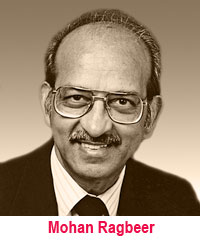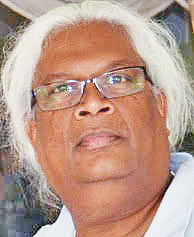Opinions
Peace, please

Testifying at the trial of Slobodan Milosevich, James Bissett, formerly Canadian ambassador to Yugoslavia, Bulgaria and Albania, and a student of Balkan politics, quoted from his writings of 2000 on balkanisation of the region: “Should a decision be taken to grant independence to Kosovo, a precedent will have been established that will pose a serious threat to the very structure of world peace and security.”
Bissett referred to the bombing of Kosovo by Bill Clinton in 1999, sanctioned by NATO, as a violation of international law relating to territorial integrity which he felt was “unfortunate” and purely for US self-interest, as Milosevic was a socialist and distrustful of US hegemony. Bissett stated, “The territorial integrity of states is an old principle that is generally acknowledged to have been firmly established by the Peace of Westphalia in 1648 which declared that outside interference in a state's internal affairs was illegitimate.”
George Bush repeated this violation in Afghanistan and Iraq; and Obama in Libya and Syria. The US and Europe shamelessly use economic might to smother dissent, stir unrest and coerce agreements; in fact economic sanctions often precede the use of arms, as in the case of Brazil and might yet succeed in Venezuela. For European countries such as Serbia, the carrot tendered was membership of the European Union. Not so for China and Russia, which are relentlessly flayed by the US media and government, as if to condition the US populace to the inevitable day when bombings will begin. Except that the targets now are not push-overs, and likely have a smarter counter-strategy.
The economic weapon has been intensively deployed against Russia for actions in Ukraine to counter US destabilisation there, and Obama has now expelled 35 Russian diplomats from Washington under the cloud of hacking that took place during the US presidential elections, which President Obama thinks were lost because of Russian actions, not by the shortcomings of his candidate! How quickly he has forgotten, and it seems the entire American media, that Putin had laid the same charges against the US and NATO of interference in the 2012 Russian elections, which Putin won, but with fewer votes than he had expected. If this is the game of tit for tat indulged in by two great powers, then we have no hope for sanity and peaceful co-habitation in our little crowded world. I am not aware of any non-contiguous state actively being undermined by the Russians. The promise of membership in the new Europe can be an offer difficult to refuse even when acceptance means a humiliating loss of self-respect, if not the loss of territory also. Putin’s response to withhold retaliation stunned Obama and the American media, and had commentators fumbling for explanations.
In the Milosevich trial, Bissett had further remarked: “A further mistake is to believe that a decision to grant Kosovo independence will not become a precedent or that it will not be seen as an example for others who might be striving for self-determination. There have been statements from US officials suggesting that Kosovo is unique and therefore cannot be used as a precedent. This is wishful thinking and it is dangerous thinking.”
To show the naiveté and short half-life of US thinking, just recall the Arab spring uprisings; the Kurdish separatist struggle; the break-up of Georgia; the UK withdrawal from the EU (not the same, you say, but similar thinking). The same US-NATO strategy used against Yugoslavia was used to flatten Afghanistan, Iraq and Libya and to derail the Libyan state and economy. Libya is especially tragic among a dozen sites of tragedy, most of which are oil-producers; three million people have been displaced, five-sixths externally, from a country with, a short time ago, the highest standard of living in Africa.
Milosevic died in a Dutch prison, of a heart attack, in 2006, age 64, having been denied a request to be transferred to a cardiology clinic in Russia. Posthumously, he was acquitted of all charges after years of trial, a result that received scant publicity, compared with the roar of cannons from the US-NATO media that had called him a “Hitler” and “butcher of the Balkans”. And what about the real “butchers”: the Bush-Cheney-Rumsfeld triumvirate that led assaults in the Middle East that killed an estimated 1.3 million people? Should they escape trial forever?
Recalling fountain pen days of youth
 Romeo Kaseram
Romeo Kaseram
In my schooldays the book list we took home before summer vacation started for the following school year invariably ended with an item taken for granted. It was positioned under the less read request as, ‘Stationery’, and appeared at the bottom, way below the long list of prominent text books, copy books, and a request for the pictorial and fine-print Highroads dictionary in colour. It was the request in the book list we all took for granted, namely, “The student must also bring to class a working fountain pen, a pot of ink, pencils, eraser and a pencil sharpener.” If it was not stated this way, the request was a separate entry into
the voluminous book list as a smaller listing under the heading, ‘Stationery’, sometimes handwritten in as an afterthought by the teacher. What was foremost in the hierarchy of required books was the text for Mathematics, Social Studies, Geography, Biology, and other subjects. These were the big items, most of them exorbitantly expensive, and this was read by my mother with pursed lips, narrowing eyes, and a forehead threatening thunder.
As well as the expense, her anxiety was also over the effort it took to bring all of these heavy books home from the bookstore. It meant a long, arduous walk to our house from the junction where the taxi dropped her off. A walk like that in the afternoon, when the hot sun burned down with the ferocity of an oven giving up its heat in waves after being primed, was as challenging as it was energy-draining. It creased anyone’s forehead into thunderstorm weather, my mother included.
“The sun will be roasting-down hot on my head,” my mother said, shuddering at the thought being drenched with itchy sweat during the walk. “I will have to ask the taxi-driver to come in from the main road with all these books. These are going to be too heavy for me to carry. So much expense to educate this little boy. Listen, you better study your lessons well!” she warned with a significant forefinger and a narrow look promising nothing less than releasing the hounds of hell should I slack off in my studies.
It never dawned on our parents and teachers that our frail and malnourished bodies, with our backs curved from the weight of books so our vertebrae poked out like the chain on a bicycle, could grow weary too. That we were young children carrying this ship-load tonnage of texts in our schoolbags back and forth, twice a day for five days, and then for a day of extra lessons on Saturday, in the morning and then in the afternoon, when the sun was so roasting-hot the pitch on the road melted and was deformed to become so many protruding cancers on its edges.
Yet we never complained, but instead studied assiduously, trekking back and forth like soldiers during the day and in the night, in the sunshine and when the rain fell, driven into marching to new warfare each day so we could overcome the many obstacles ahead of us in a time and place when opportunities to succeed were so sparse.
It came to the moment after the perusal of the purchased books to examine the contents of the accompanying schoolbag. Typically, the bookstore having fulfilled the booklist, would include a new schoolbag, always bigger in holding volume than the year before. In it would be stuffed the stationery goodies – erasers, a few pencils, a pencil-sharpener, and in one of the large front pockets, a pot of blue ink, and two or sometimes three brand-new fountain pens sealed in its plastic wrapper, with each in a long, slim box.
To peruse the new books was to open each and luxuriate in the new-car, new-book smell held between its crisp, white pages. The more demanding, technical texts would be put aside in a pile for papering later, which was covering and taping the outside of the book using sheets of shop brown-paper; sometimes, my mother wrote-in my name and address on the inside cover as a precaution against classroom theft. The novels for English class were put into a pile for later reading.
The fountain pens received special attention. Each was taken out of its wrapping and the nib perused by holding it up to an eye as experienced as an archer examining the tips of arrows. The opened bottle of ink gave out a strong, medicinal smell. Each pen was dipped in carefully, and the rubber bladder gently squeezed, until the wheezing stopped and the reservoir was filled. Like a knife-throwing virtuoso, the pens were carefully laid on their side. Each was then tested for road-worthiness on a clean sheet of white paper.
Recently, at a stationery store back home, my eyes fell on the slim boxes of fountain pens in a dusty corner of the glass case; my heart leapt. I bought three pens. Back here, I charged one with ink, and recalling those test-drives of my youth, and those past days of Youth fountain pens, I began scripting, “The quick brown fox…”
